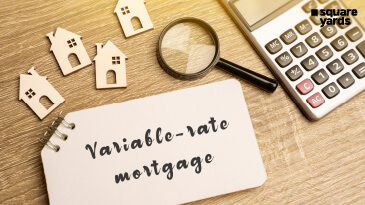Deciding whether to utilise home equity credit depends greatly on individual financial situations and goals. There are two primary types of home equity line of credit: one integrated with a mortgage and another operated as a stand-alone product. If you are considering tapping into your home equity LOC, it can be a powerful strategy if used judiciously and in alignment with one’s long-term financial objectives. However, it’s important to approach home equity loans with caution. The stakes are high; defaulting on a home equity loan can lead to foreclosure since your home is collateral. Therefore, evaluating your financial stability and certainty of income is crucial before deciding to take out a home equity loan. Ensure that the loan’s purpose is worth the risk and that the loan terms are manageable within your budget.
What Is Equity On A House And Why Use It?
Equity on a house is the value of the homeowner’s interest in the property, calculated as the home’s current market value minus any mortgage balances. It can be used for loans, improvements, or as investment collateral. For many homeowners, to access home equity is one of their most significant financial assets. Leveraging this equity through a loan can be a strategic move, offering lower interest rates than unsecured loans, making it a cost-effective way to manage large expenses. You might use home equity for big improvements that boost your property’s value. Or, you could consolidate high-interest debts into one easier payment. Another option is funding major life events, like a child’s education. Clearly, there are various home equity pros and cons to consider. This is also why a home equity line of credit proves to be a versatile and powerful financial tool.
Exploring the Pros and Cons of Using Home Equity Loans

Thinking to access home equity with a loan? Let us go a little deeper into the many pros and cons we just mentioned. Using a home equity loan has its advantages and disadvantages. The main benefit is lower interest rates, as your home serves as collateral, reducing lender risk and your borrowing costs. This is especially useful for significant expenses like home improvements or education, which can be costly with high-interest credit options. Using the loan for renovations may also allow for tax deductions, lowering costs further.
However, the primary downside is the risk of losing your home if you can’t repay the loan since it’s secured against your property. This requires a solid repayment plan and responsible use of the funds. Spending on non-essential items could lead to financial instability. Here is a detailed look into the several ways you can use a home equity line of credit, along with the various advantages and disadvantages of them all:
Boosting Your Home’s Values
Home improvement is a popular reason to use a home equity loan or HELOC. It’s perfect for big changes like a kitchen makeover, which makes your home nicer and boosts its value. Financial experts believe home equity credit is a great option for large projects that increase a home’s value over time. Do be cautious. A home equity line of credit is great for ongoing projects since you can draw funds as needed, but remember, the extra monthly payments can stretch your budget. And, if things go south and you can’t pay back what you’ve borrowed, there’s a risk of losing your home. So, plan carefully and make sure it’s the right move for you.
Covering Education Expenses
Using a home equity loan or home equity LOC to fund education, whether it’s for you or a loved one, can be a savvy financial strategy. This approach makes the most sense when the interest rates on home equity are lower than those on student loans, which isn’t always the case, especially with federal student loans. It’s important to compare the costs because, sometimes, federal loans offer lower rates and more flexible repayment options.
Before you decide, think about the specific education investment. For instance, some employers might cover costs like a teaching certification, or certain public service roles could qualify you for student loan forgiveness. In such cases, using a home equity loan—which risks your home—might not be your best option. Though home equity loans offer lower rates and flexible payment options ideal for tuition, they require immediate repayment and carry a foreclosure risk if you default. It’s wise to first explore all financial aid options to ensure you’re making the best financial decision.
Streamlining Debt
Credit card debt is on a steep climb, with nearly half of all cardholders carrying balances month-to-month, according to a recent Bankrate survey. This isn’t just a statistic—it’s a financial burden. Paying down that debt isn’t just tricky; it’s costly.
That’s where a home equity LOC, or home equity loan, comes into play. Matt Hackett from Equity Now points out that using home equity to consolidate debt is a popular strategy because it typically offers much lower interest rates, spreads the payments over a longer period, and can significantly cut your monthly expenses. Just a heads up—switching from unsecured debts like credit cards to a secured debt that uses your home as collateral means you could face foreclosure if you default. Plus, if you haven’t fixed the spending habits that got you into debt, you’re not solving the problem, just shifting it. Make sure you’ve got a solid repayment plan and have tackled those underlying financial habits before proceeding.
Cover Unexpected Charges
It’s widely recommended to have an emergency fund that covers three to six months of living expenses. Still, reality often falls short of this ideal, as Bankrate’s 2024 emergency savings survey highlights. When unexpected costs like hefty medical bills or urgent home repairs arise, tapping into a home equity loan or home equity LOC could help you manage these financial shocks.
However, using your home’s equity for emergencies comes with its caveats. Firstly, you need a solid repayment plan because it’s risky to rely on your home as a financial lifeline without one. Setting up an emergency fund remains financially prudent, even if you have access to home equity. Also, remember that obtaining a HELOC, or home equity loan, isn’t instantaneous. If you don’t already have the loan set up in an urgent situation, it won’t help immediately. So, while a home equity loan can be a good backup, it’s crucial to prepare and consider the implications of using such a significant asset for emergency funding.
Fund Your Dream Wedding
Weddings are getting pricier every year. To handle these hefty expenses, some couples consider using a loan on home equity credit instead of a wedding loan. Why? Well, the interest rates on home equity loans and home equity LOCs are generally lower than those on personal loans, which can make a big difference in the long run.
Now the risk is obvious: you’re essentially putting your home at risk for what is a one-day celebration. If you don’t have a concrete plan to repay the loan, it’s a risky move. Plus, by financing your wedding this way, you’re adding interest to an already expensive event, which means you’ll pay more over time. If you decide to go down this path, it’s crucial only to borrow what you need. Opting for a home equity credit might give you more flexibility, allowing you to draw only as much as you need when you need it.
Finance Business Ventures
Many entrepreneurs turn to their home equity credit when they need cash to start or expand their business. It can be a smart move, especially if you want to save on interest. Home equity loans often have lower rates than business loans, so you might keep more of your capital working for your business rather than paying it out in interest. However, before diving in, crunching the numbers thoroughly is critical.
On the plus side, securing a home equity loan can be easier than getting a business loan, particularly for new entrepreneurs without a proven track record. And the risk stays the same—if your business doesn’t pan out, you’re still on the hook for the loan.
Leverage More Investments
Using your home equity credit to jump into investment opportunities like the stock market or purchase rental properties can be tempting—it’s a classic example of using leverage to enhance your wealth. A savvy investor with a good plan might even consider using a home equity loan to finance another property investment. But remember, these moves are not without significant risks.
It’s crucial to monitor the interest rates for home equity loans, which can sometimes soar to 9% or 10%. At such high rates, the cost of borrowing could overshadow any potential returns from your investments. Essentially, the financial bar to achieve a positive return gets much higher. While leveraging your home can amplify your investment capacity, it also puts your primary residence at risk if the investments falter. Moreover, the tax benefits of a home equity loan generally don’t apply to investments, except in specific cases like purchasing adjacent land.
Supporting Retirement Costs
If your retirement savings are a bit thin and your monthly budget is tight, tapping into your home’s equity might seem like a good way to supplement your income. This can give you a financial boost to handle everyday expenses, deal with emergencies, or make home improvements that enhance your comfort in your later years. Remember, this strategy heavily depends on your ability to repay the loan or home equity LOC. If you’re not yet drawing Social Security, you might plan to use those benefits to repay the borrowed funds later. But if you’re fully retired and your income isn’t what it used to be, repaying that debt could become a real challenge. Adding to the complexity, if you’re still paying off your original mortgage, drawing from your equity increases your financial burden and extends your debt. Remember, any debt secured against your home doesn’t just vanish; if something happens to you, your heirs will need to deal with it if they want to keep the house. So, it’s essential to think this through.
Make A Vacation Out Of It
Using your home’s equity to fund a vacation might seem tempting, especially when faced with high travel costs. It’s a way to avoid racking up credit card debt, as home equity loans usually offer lower interest rates. This means you could save on the extra costs of high credit card APRs. But remember, vacations are fleeting, while the debt secured against your home could stick around for a long time. So, ask yourself: Is it worth risking your home for a temporary getaway?
Financing Big-Ticket Items
You can think about using your home equity credit for big-ticket items, like a new car. It’s certainly an option, especially since home equity loans usually offer lower monthly payments than other loans due to their longer repayment terms. But here’s the catch: over the long haul, you pay a lot more in interest. And when it comes to something like a car, which depreciates quickly, you might find yourself paying off a loan long after the item has lost much of its worth.
So, while it might be tempting to tap into your home equity credit for major purchases because of the attractive initial terms, it’s important to consider the long-term implications. Using your home’s equity can be risky for depreciating assets like cars. You’re essentially putting your home on the line for something that won’t increase in value or provide a return on your investment. When you’ve finished paying off the equity loan, you might find that the purchase wasn’t worth the financial and security risks.
Using Home Equity Wisely
Whether you’re considering renovating your home, funding education, or consolidating debt, tapping into your home equity LOC is a significant decision with many upsides and downsides. Remember, while the lower interest rates and potential tax deductions are appealing, the risks of extending your financial commitments and putting your home on the line should not be taken lightly. Always weigh your options carefully, consider your long-term financial health, and consult with a financial advisor to make sure you’re making the best decision. Thanks for joining me on this deep dive into the world of home equity credit—here’s to making informed and savvy financial decisions!
You May Also Read
|
Know The 3 Year Fixed Mortgage Rates |
|
|
Guide To Canada Mortgage Approval |
|
|
What is Pine Mortgage in Canada |
|
|
How To Pay Mortgage Prepayment Penalty |
Frequently Asked Questions (FAQs)
How much home equity can I borrow against?
You can generally borrow up to 80% of your home's equity, depending on your home's value, the remaining mortgage balance, and your credit score.
Will using home equity affect my credit score?
Taking out a home equity loan or HELOC may lower your credit score initially due to increased debt and credit utilisation. However, making consistent payments can improve your score over time.
What happens if I can’t repay the home equity loan or HELOC?
Failing to repay a home equity loan or HELOC can lead to foreclosure, as your home serves as collateral.
Is the interest on home equity loans tax-deductible?
Yes, the interest on home equity loans is tax-deductible if the funds are used to buy, build, or substantially improve the home that secures the loan. You must itemise your deductions to benefit from this.
Are there any fees associated with using home equity?
Yes, home equity loans and HELOCs may include closing costs ranging from 1% to 5% of the loan amount, covering fees like origination, appraisal, and credit reports. HELOCs might also have annual fees, early termination fees, and charges for converting to a fixed rate.











